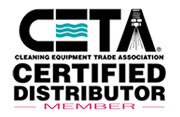Pressure washers provide precise, powerful cleaning for homeowners and industrial employees alike. But when temperatures begin to fall, even businesses that rely on pressure washing may have to decide whether or not to continue using their pressure washers during the winter weather.
If you want to continue to use or protect your pressure washer in cold weather, follow these guidelines.
1. Consider Professional Winterizing
While you can take measures to winterize your pressure washer yourself, you should consider professional winterizing if you plan to use the unit several times throughout the season.
Our equipment experts at Ben’s Cleaner Sales can evaluate the condition of your washer and make changes to improve performance and protect the unit’s structural integrity during cold weather use.
Learn more about pressure washer winterization services available from the team at Ben’s Cleaner Sales in our “Winterizing” blog post.
2. Lubricate the Engine
Slow or inefficient performance is one of the most common pressure washer issues in low temperatures. Usually, this change in performance stems from a problem with how the engine runs, as we discuss in this section, or a problem with the fluids, as we cover in the next section.
In cold weather, machines move more slowly and require more fuel. To help your pressure washer combat the cold temperatures, keep the engine well lubricated, especially the carburetor and cylinders.
3. Stabilize Your Pressure Washer Fluids
Fluids can thicken or freeze in winter conditions. If you plan to use your pressure washer when it’s cold outside, you must prepare your fluids in advance.
1) Add a fuel stabilizer to your gas and run the engine for a couple minutes to make all the carburetor parts and orifices have been replaced with treated fuel.
2) Flush all water by syphoning RV antifreeze through your machine. This also helps lubricate valves and packing. Always remember to use RV not Auto antifreeze as the auto antifreeze is not environmentally sound when you flush it on your next pressure washing job. Bottles of RV antifreeze are available at Ben’s with a garden hose connection to make it easy to draw in through the pump.
3) It is critical that you maintain the level and cleanliness of the oil during winter as it needs to be full and clean to properly lubricate during colder weather. Change the engine oil regularly or every 100 hours. If the oil starts to look like sludge, you will need to replace it immediately. In addition to the engine, you will need to change the pump oil once a year, which is a different type of oil and should say pump oil on it. If you use engine oil in the pump it will foam up, loose lubrication and possibly cost you a new pump. It is a special non-detergent oil with a defoamer, corrosion inhibitor and moisture inhibitor.
Use additives designed for cold weather use to keep your gas and pump water from freezing. Put a stabilizer in with your gas to keep from going stale, and “pump saver” in your water pump to keep from freezing..
4. Store the Pump in a Warm Area
Store the pressure washer in a warm area if you use it daily to prevent having to do the antifreeze procedure. Your pump is most vulnerable to ice when not in use. To protect your pressure washer overnight and during the weekend while using on a regular basis, store the unit in a heated area. Remember, storing in an unheated shed does not save your pressure washer from freezing.
Before storing your pressure washer, always disconnect the pressure hose and drain. Hoses will expand when frozen and split the wire braid or can be blocked by ice putting excessive pressure on the pump when starting.
5. Pay Attention to the Temperature
When you use your pressure washer in the winter, pay attention to the weather. You should only use the pressure washer during the warmest time of day. The highest temperatures usually occur during the late morning until the mid-afternoon.
Avoid using your pressure washer in below-freezing temperatures, and take note of any wind chill. On windy days, always point your pressure washer downwind to avoid being misted as you work. Whenever possible, pressure wash while standing in direct sunlight since temperatures can be several degrees lower in the shade.
In colder weather, use a hot water pressure washer. Ben’s Cleaner Sales has a special steam machine to clear ice dams in frozen weather to prevent roof damage.
6. Stock up on Snow & Ice Melter
Use a superior snow and ice melt after pressure washing to prevent freezing walkways from freezing over before evaporating to prevent slipping.
Ben’s Cleaner Sales stocks snow and ice melter that doesn’t have a shelf life and is safe for people, animals and vegetation. Superior Snow & Ice Melter is non-corrosive to metal and concrete, and creates an instant traction. It’s a great product that is long lasting to prevent freeze-thaw-refreeze cycles.
7. Dress Warmly and Use Protective Clothing
As you use your pressure washer, take precautions to protect yourself. Because you’ll be in close contact with water in low temperatures, you run the risk of developing hypothermia.
Always wear full winter gear, including sturdy boots, a hat, and gloves when operating your pressure washer. Ben’s Cleaner Sales carries a full line of Helly Hansen protective workwear to keep you warm and dry in cold, wet weather. From warm base layers to waterproof protection, Ben’s has a full selection to choose from. Staying warm helps improve productivity as well as comfort in cold weather.
If you will be outdoors for several hours, take regular breaks in a heated indoor area.
Use these tips and tricks to ensure that your pressure washer not only survives the winter, but continues to perform efficiently whatever the weather.

